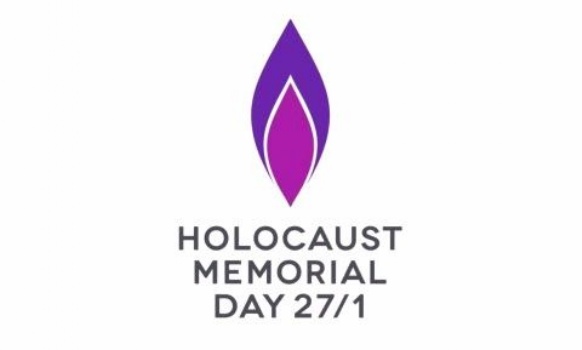Holocaust Memorial Day

This year to commemorate Holocaust Memorial Year 9 students attended a live webcast with a Holocaust survivor on Wednesday, 22nd January. By providing students with the opportunity to participate in the live webcast, they can put a human face to the histories they learn and can engage with one survivor’s personal experiences. It is sometimes difficult to comprehend the vast statistics and find the humanity in ‘the six million’ who were killed. However, survivor testimony can help us to look beyond the statistics and put a face, name, and voice to the numbers.
This year students were able to hear from Mala Tribich MBE. Mala was born Mala Helfgott in 1930 in Piotrków Trybunalski, Poland. When the Nazis invaded Poland in 1939, Mala’s family fled eastwards. When they returned, Mala’s family had to move into the ghetto which was established in her hometown, the first in Poland. Life in the ghetto was terrible with families living in overcrowded, unhygienic conditions. Mala became a slave labourer until November 1944, when the remaining Jews were deported. Mala was separated from her father and brother and together with Ann was sent to the Ravensbrück concentration camp. After about 10 weeks they were transported in cattle trucks to Bergen- Belsen where conditions were appalling and Mala contracted typhus. At the time of the liberation by the British army, Mala was very ill. She was transferred to a hospital/children’s home and it was many weeks before she recovered. Three months later she was sent, with a large group of children, to Sweden where she spent nearly two years. Not expecting any of her family to be alive, Mala was surprised to receive a letter from her brother Ben in England, the only other member of her close family to have survived. In March 1947, Mala came to England to be reunited with Ben.
This year’s theme for Holocaust Memorial was For a Better Future. Mala spoke frequently about the hope that people hearing her testimony could then remember some of what she had experienced to try to ensure that similar events did not occur again. This Holocaust Memorial Day also marked the 80th anniversary of the liberation of Auschwitz-Birkenau, the largest Nazi concentration camp complex. 80 years on from the liberation of Auschwitz- Birkenau, antisemitism has increased significantly in the UK and globally following the 7th October attacks in Israel by Hamas and the subsequent war in Gaza. Extremists are exploiting the situation to stir up anti-Muslim hatred in the UK. Many UK communities are feeling vulnerable, with hostility and suspicion of others rising. It is important for everyone to remember that the actions of a minority should not be used to tarnish the reputation or to discriminate against people that follow the same religion on either side of the conflict.
There are many things we can all do to create a better future. We can speak up against Holocaust and genocide denial and distortion; we can challenge prejudice; we can encourage others to learn about the Holocaust and more recent genocides. As such, we hope that our Year 9 students found this year’s testimony to be a valuable insight and that conversations can continue to happen around these ongoing issues.

